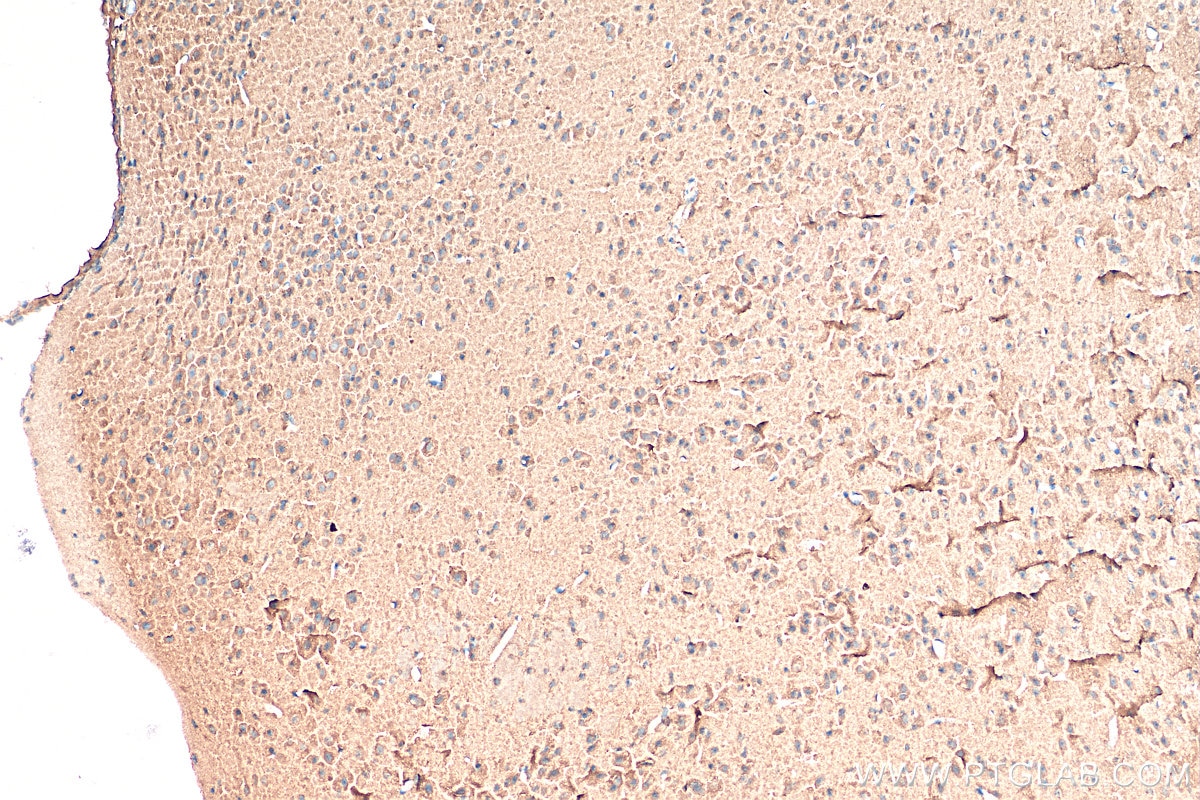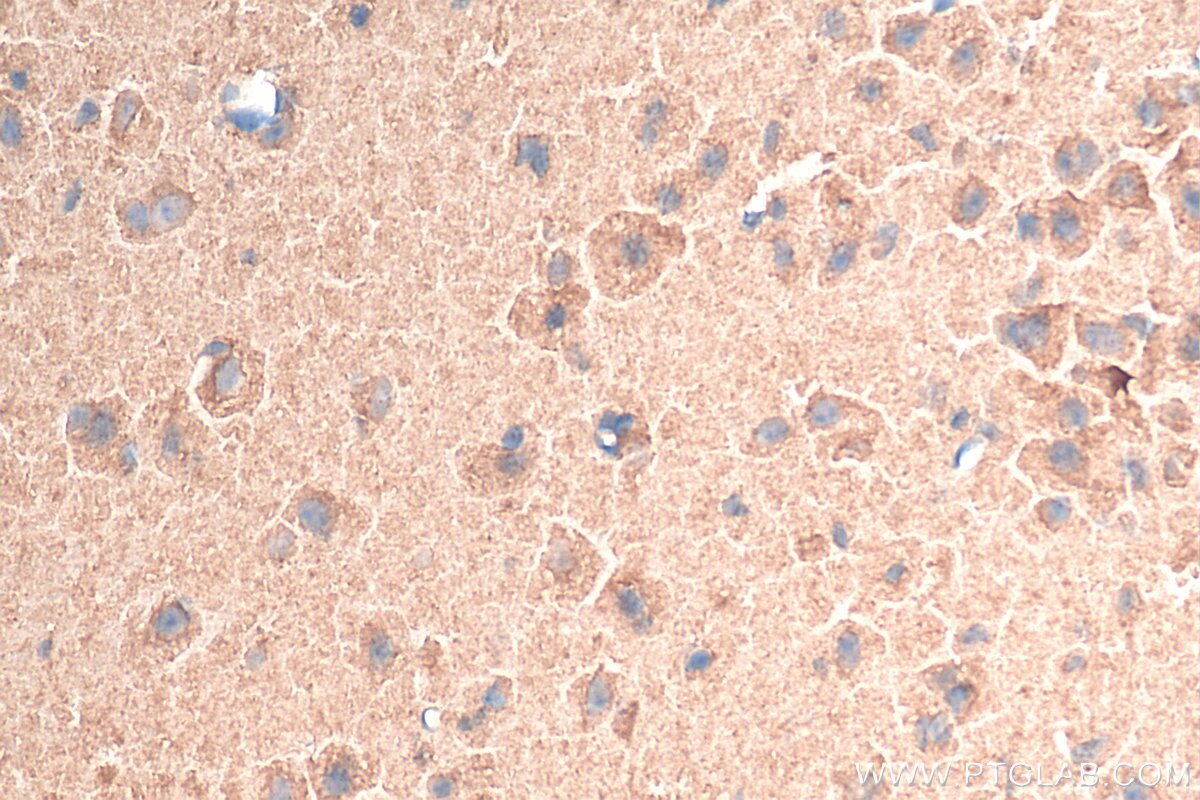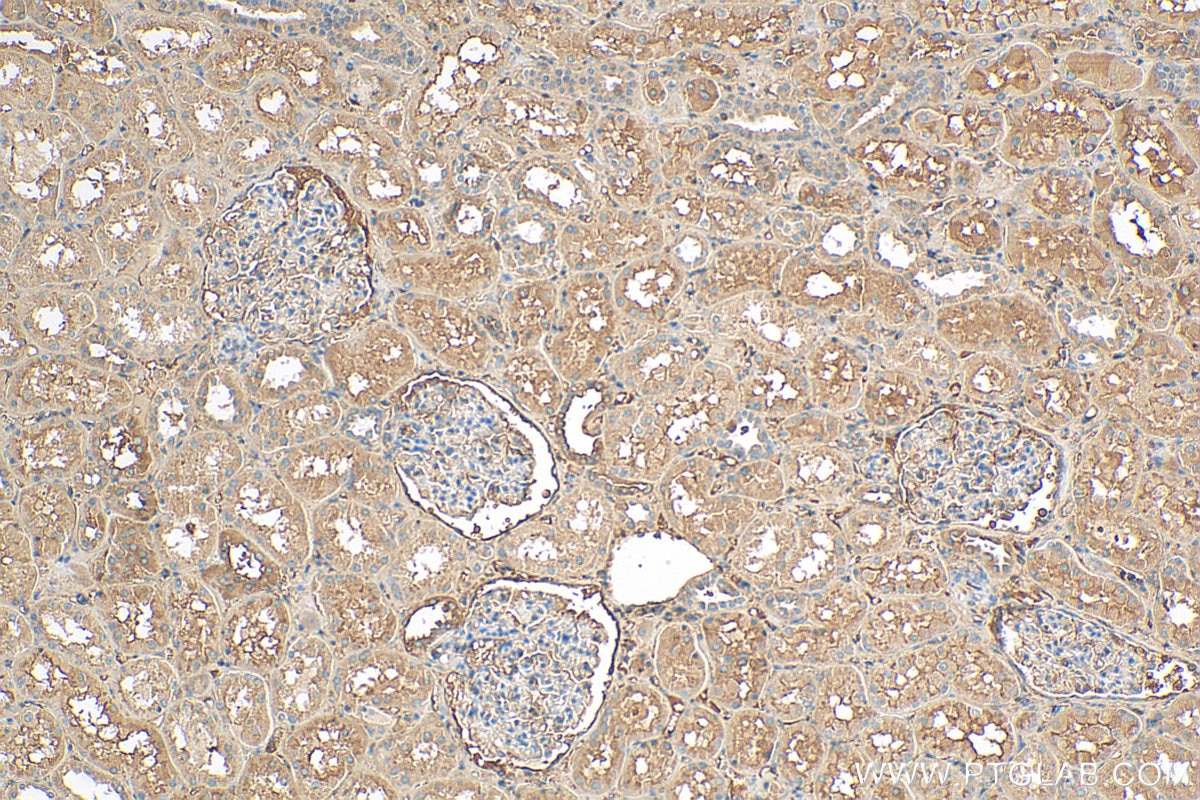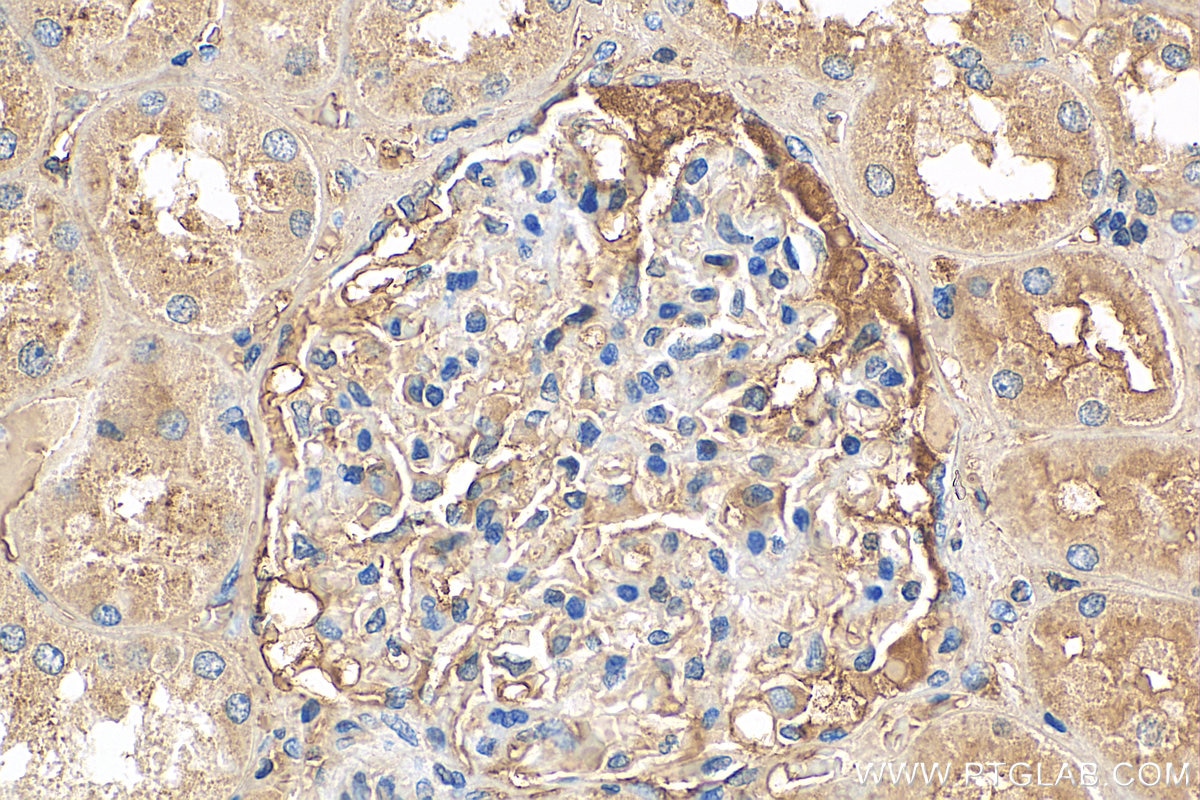Tested Applications
| Positive IHC detected in | mouse brain tissue, human kidney tissue Note: suggested antigen retrieval with TE buffer pH 9.0; (*) Alternatively, antigen retrieval may be performed with citrate buffer pH 6.0 |
Recommended dilution
| Application | Dilution |
|---|---|
| Immunohistochemistry (IHC) | IHC : 1:50-1:500 |
| It is recommended that this reagent should be titrated in each testing system to obtain optimal results. | |
| Sample-dependent, Check data in validation data gallery. | |
Product Information
Biotin-10147 targets t-Plasminogen activator/tPA in IHC applications and shows reactivity with human, mouse, rat samples.
| Tested Reactivity | human, mouse, rat |
| Host / Isotype | Rabbit / IgG |
| Class | Polyclonal |
| Type | Antibody |
| Immunogen |
CatNo: Ag0200 Product name: Recombinant human PLAT protein Source: e coli.-derived, PGEX-4T Tag: GST Domain: 359-516 aa of BC002795 Sequence: NDIALLQLKSDSSRCAQESSVVRTVCLPPADLQLPDWTECELSGYGKHEALSPFYSERLKEAHVRLYPSSRCTSQHLLNRTVTDNMLCAGDTRSGGPQANLHDACQGDSGGPLVCLNDGRMTLVGIISWGLGCGQKDVPGVYTKVTNYLDWIRDNMRP Predict reactive species |
| Full Name | plasminogen activator, tissue |
| Calculated Molecular Weight | 57 kDa |
| Observed Molecular Weight | 32-35 kDa, 65 kDa |
| GenBank Accession Number | BC002795 |
| Gene Symbol | tPA |
| Gene ID (NCBI) | 5327 |
| RRID | AB_2934328 |
| Conjugate | Biotin |
| Form | Liquid |
| Purification Method | Antigen affinity purification |
| UNIPROT ID | P00750 |
| Storage Buffer | PBS with 50% glycerol, 0.05% Proclin300, 0.5% BSA, pH 7.3. |
| Storage Conditions | Store at -20°C. Avoid exposure to light. Stable for one year after shipment. Aliquoting is unnecessary for -20oC storage. |
Background Information
Plasminogen activator, tissue (PLAT, synonyms: TPA, T-PA) is a tissue-type plasminogen activator, a secreted serine protease which converts the proenzyme plasminogen to plasmin, a fibrinolytic enzyme. Tissue-type plasminogen activator is synthesized as a single chain which is cleaved by plasmin to a two chain disulfide linked protein (33 kDa and 32 kDa). PLAT enzyme plays a role in cell migration and tissue remodeling. Increased enzymatic activity causes hyperfibrinolysis, which manifests as excessive bleeding; decreased activity leads to hypofibrinolysis which can result in thrombosis or embolism. tPA has 4 isoforms produced by alternative splicing with the MW of 63 kDa, 33 kDa, 57 kDa and 44 kDa.
Protocols
| Product Specific Protocols | |
|---|---|
| IHC protocol for Biotin t-Plasminogen activator/tPA antibody Biotin-10147 | Download protocol |
| Standard Protocols | |
|---|---|
| Click here to view our Standard Protocols |










